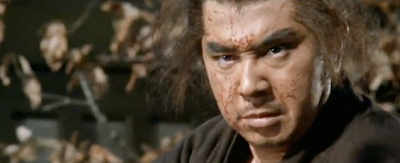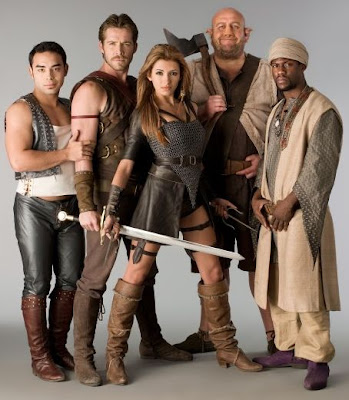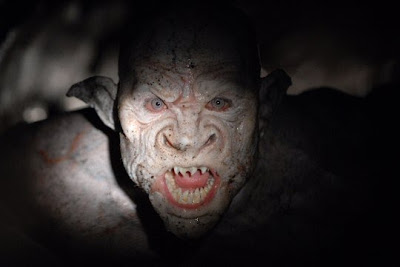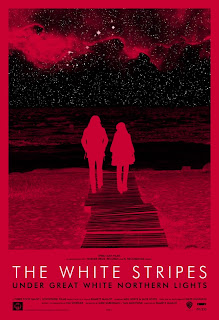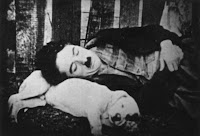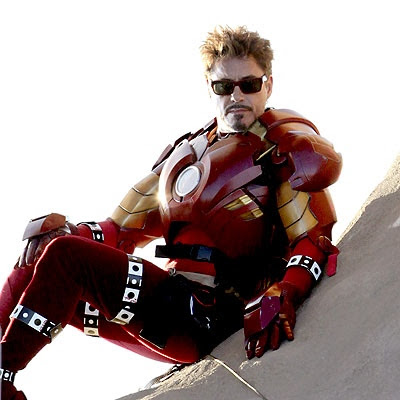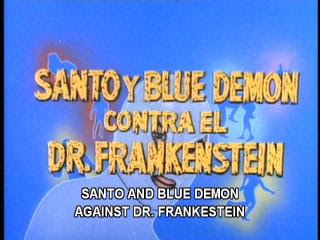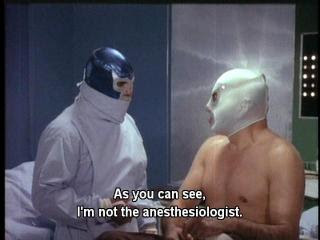#71. The Prisoner (2009)
Someone really hates 1967's
The Prisoner, and his name is Bill Gallagher. It has to be. How else could the writer of the 2009 remake be so entirely off point? The original
Prisoner sets viewers in a strange, isolated island community where main character Patrick McGoohan plays "Number Six," a man deposited after resigning as a British agent in "The Village," a place where most every other citizen is equally trapped, and forced to perform their day-to-day lives as if they were in fact happy and free. The ring-leader of this imprisonment is clearly "Number Two," who serves as Number Six's primary opposition as Six tries to uncover the secrets of The Village and plot his own escape. You can just imagine the political resonance of such a piece in the 1960s, but there is nothing so removed about the notion of being trapped under the cover of normalcy that today's audiences couldn't also appreciate it in its rawest, simplest form. I mean, good heavens, we watch
Mad Men with verve and fascination, don't we?
But no, the flexible premise of the original series wasn't enough for this remake: In Gallagher's six-episode bastardization we see his dissatisfaction with the starting material from the get-go, when he intersects activity in the village with more flashback scenes to pre-village life for main character Michael / Number Six (James Caviezel) than I've seen in all the other TV shows I've watched this year
combined. It's clear Gallagher doesn't think he can bolster a story set solely in the village long enough without these interruptions, but the interruptions are themselves thoroughly boring, and certainly do precious little to progress the plot. In his appeal, I suspect, for a cerebral thriller, a mood-piece in six acts, Gallagher instead develops a world with no consistent rules or expectation sets. Why should we care about the plight of Number Six? The time dilation in this miniseries is such that one episode Six might be quietly resisting Number Two (Ian McKellen, whose awesomeness sadly cannot salvage this piece), and in the next Six might be committed to falling in love and getting married within The Village community. In
six episodes this much motivational variance is wholly unbecoming.
Yes, it's clear Gallagher wants to embrace The Village as a place that may or may not be real. (And when you get to the big reveal, you'll likely be as disappointed by its stupidity as I was.) But in the process he completely side-steps all the fascinating elements that made the original such a prescient curio of 1960s TV. By taking away self-awareness from everyone else in The Village, Gallagher pointedly turns from the basic tension of imprisonment under the veil of normalcy, and the meta-analysis of how individuals are supposed to resist under such circumstances. And what he replaces it with is, quite simply, nonsense. So do yourself a favour: Watch the original instead.
#72. X-Men Origins: Wolverine
I did not actively choose to watch this film: My housemate put it on. I say this much because I vividly recall the lambasting this piece received from friends last year who similarly appreciate the comic book genre, and whose opinions therefore receive great consideration in my own film selection process. Sure enough,
X-Men Origins: Wolverine wholly lives up to those condemnations.
My purism in this regard is quite particular: Wolverine's origin story in the Marvel universe has its own history of fluctuations, and there are especially varied accounts of what, precisely, his body is and is not able to resist. Variation itself is not my problem with this prequel to the X-Men series: My problem is instead with screenwriters not being confident enough in some truly killer source material to recognize they don't need any more -- and then adding a critical mass of sheer crap to the mix. (Also, blurring the lines between American and Canadian identity so they can better appeal to American audiences.
Lame.)
So the accepted Wolverine storyline involves him being born to plantation owners in Alberta in the 1800s, spending time in a mining colony and in the wilderness with wolves, then living with Blackfoot Indians until the death of his lover, then fighting in World War I, then making his way eventually to Japan, where he has a wife and son. Then it's off to WWII, and an epic struggle between Canadian and American military/defense divisions over his right to self-determination/not being tortured for military research ensues. (For anyone who hasn't guessed by now, Wolverine isn't exactly dying of old age here.)
But despite having, quite literally,
lifetimes worth of material here, writers for the film didn't think that was enough. You know what Wolverine
really needs in his origin story? Why, a brother with exactly the same mutation, so that they can not-grow-old-together until, inevitably, said brother turns evil and jaded, pretty much forcing a final showdown.
Beyond implying that Wolverine's actual origin story isn't exciting enough for a full-length film (a ridiculous claim, any way you look at it), the problem with this staid model of good-guy/bad-guy is that it's just plain boring, and furthermore does an immense disservice to the fluid construction of Wolverine's own brand of justice as it has existed in comic books for decades (hint: Wolverine isn't exactly a saint). In the film version of his story, there's also the requisite betrayal on another front -- a twist so flimsily constructed as to make me tear at my hair while enduring it -- and later, the convenient martyring justification for everyone's actions therein. This film tries exceptionally hard to tie its origin story into the beginning of the X-Men series, but its missteps are so plentiful that when Wolverine ultimately loses his memory of all this (not really a spoiler if you've seen the other X-Men films; and if you haven't, it's not like you're going to go out of your way to watch this one first), you'll find yourself wishing you had, too.
The essential point of the Wolverine origin story is this: Wolverine has had
lifetimes worth of experience of humanity at its best and its worst. When that worst of humanity strips him, ultimately, of that very wealth of experience, what remains but the feelings of loss, anger, and displacement which so clearly drive his actions -- in comic book and film alike -- when meting out his very particular brand of justice? That's the feeling a good Wolverine origin story should have left. Instead we have Hugh Jackman's valiant but ultimately futile attempt to enhance a B-grade action film with such facile plot twists that you'll be lucky, by the end, if you're not howling yourself.





